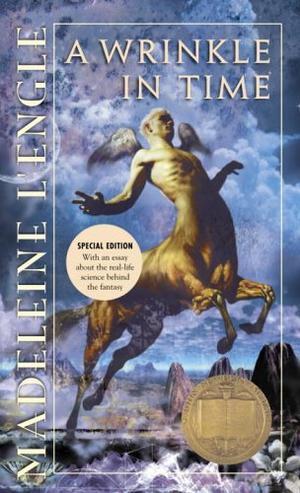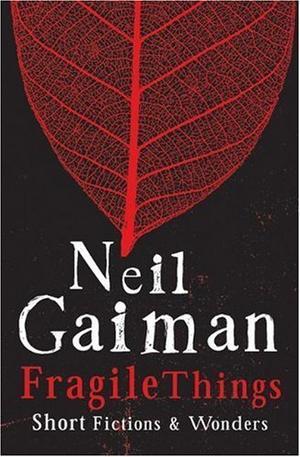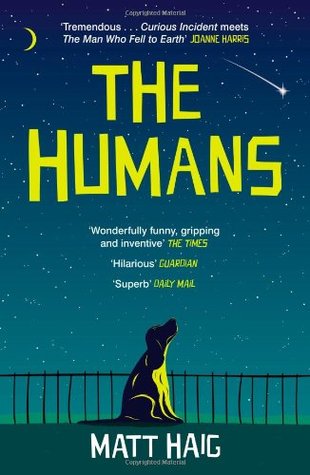JB
Annihilation
A Novel (The Southern Reach Trilogy)
av Jeff VanderMeer (forfatter).
FSG Originals 2014 Paperback
JBs eksemplar av Annihilation - A Novel (The Southern Reach Trilogy)
Lesetilstand
Har lest denneHylle
Ingen hylle
Lesedato
2017
Favoritt
Ingen favoritt
Terningkast
Ingen terningkast
Min omtale
Ingen omtale
Bokdetaljer
Forlag FSG Originals
Utgivelsesår 2014
Format Paperback
ISBN13 9780374104092
Språk Engelsk
Sider 208
Finn boka på biblioteket
Finner du ikke ditt favorittbibliotek på lista? Send oss e-post til admin@bokelskere.no med navn på biblioteket og fylket det ligger i. Kanskje vi kan legge det til!
Bokelskeres terningkastfordeling
2 5 2 2 0 0Bokomtaler
Reading can be a form of escape. Especially if you could step into one of literature’s fantastic realms, where its imaginary lure promises all kinds of adventure away from the stresses of everyday life. Sometimes, you don’t know where you’re headed, what you will face or how you will react, but that’s all part of the experience. You just long to explore some world completely unbeknownst to you!
And I initially explored the world called Area X of “Annihilation” in movie format. I was eager to go somewhere new, but I wasn’t expecting much; it just seemed like a jolly good time, a cool sci-fi movie with aliens. I was mostly wrong, because I didn’t just explore a different world, but a different kind of reality. I think that was one of my first encounters with what could be defined as cosmic horror or weird fiction, and it wasn’t just jolly good, it was awesome. At the time, it was some of the most trippy and mind-bending stuff I had ever seen in my entire life: The whole twisted nature warping concept combined with the cinematography had such a crazy effect on me afterwards I felt like I had to question my reality altogether.
I freaking loved it!
Now, many years later, I dared to venture into Area X once again.
“All you heard was the low moaning. The effect of this cannot be understood without being there. The beauty of it cannot be understood, either, and when you see beauty in desolation it changes something inside you. Desolation tries to colonize you.” (5-6)
While the images in the movie were indeed intense and striking - in a way my own imagination fail to be - the visual effects created by my own brain could go even deeper, be more intellectually palpable and make me more keenly aware of my emotional sensibilities. The movie made my body physically tingle with awe, while the book made my mind quiver with weird fancy. Both of which I experienced as wholly satisfying adventures.
My edition of the book, by the way, is the 10th anniversary paperback edition, with new cover design by Pablo Delcan. The artwork has a gorgeous holographic foil treatment to the letters and depiction of a biologically contaminated, yet beautifully distorted, too tall and overgrown wild boar. I currently keep it on display on one of my weird fiction book shelves; it’s eye-catching and captures the essence of what this book is all about.
Speaking of capturing the essence of the book, my edition also comes with a great new introduction by the accomplished author Karen Joy Fowler. She writes about the themes that resonates with her, the most noteworthy qualities of VanderMeer’s writing, as well as the most compelling features of the characters and narrative that stood out to her, emphasizing what makes “Annihilation” an imaginative, hallucinogenic exploration into a sublime and uncanny unknown, one that first and foremost makes the reader not only cautious of their surroundings, but highly attentive, even overstimulated, by the immensity of nature’s will to survive – a consequential ecological totality.
“(…) “most of area X is now wilderness, a bewildering wilderness in which anything and everything seems possible. Despite the narrator’s disorientation, shared now by the reader, the text is profoundly immersive. VanderMeers descriptions are detailed – sounds and sights, beasts and plants, all made terrifically vivid in his images and prose.” (xix)
“And everything here is of equal interest – the ruins of houses, the appearance and activities of insects, the waterways, dolphins, staircases, stones. The text requires a sort of bright attentiveness on the part of the reader, an energy of engagement to match the energy of the writing. As a narrative strategy, the specificity of detail serves to ground the reader in a story otherwise filled with uncertainties. We may not know what exactly is happening, how or why, but we will always know where we are.” (xx)
What stands out to Fowler, then, is how the level of detail forces us to be more aware of our own environment, and the character’s interactions with it reveals the proper relationship humans have to nature. She talks about how there can be beauty in that relationship, but also danger, because there’s a great deal of unpredictability and uncertainty involved, caused by human hubris and lack of knowledge. As such, "our climate crisis is an unstated but evident subtext throughout this fantastic and fantastical book”.
Yes, “Annihilation” is an imperative, but it’s so much more than that; it challenges our perspective, our reliance on ourselves, our sense and our sense of self. What stands out to me the most, then, is how that challenge manifests, how said unpredictability and uncertainty resonates with my own fascination for nature’s beauty, dangers and mysteries.
Because VanderMeer makes use of the classic plot of explorers into unknown lands, I feel like I explore Area X together with them. The character’s interaction with their environment makes me more aware of my local environment and how I interact with it. They know very little, and so do I. They observe, I observe.
And we all start to realize something profound.
“The project of understanding our world is less advanced than we might imagine, for all the years we’ve been about it. Even our own bodies remain mysterious to us. No other book captures this fact so well – that we live within an understanding of circumstances that is partial at best and mistaken at worse. Despite all our efforts, our observations, our ongoing experiments – even when carried out with care and rigor – the world remains largely unknowable to us. We can create logical, plausible, even predictive narratives, but these are merely hypotheses. To think we have attained, or someday might attain, a complete clarity, much less bend the world to our will, vastly overestimates our powers. To expect certainty is just another example of human hubris.” (xxii)
There are many disquieting revelations such as this that you got throughout the book. Through cryptic living words on a wall, a Lovecraftian monster, subliminal messaging, distrust, deception, fear and even the power of love.
All of which causes a narrative vertigo, a disequilibrium in our reading experience.
Much like what happens in this review: It changes.
“It creates out of our ecosystem a new world, whose process and aims are utterly alien – one that works through supreme acts of mirroring, and by remaining hidden in so many other ways, all without surrendering the foundations of its otherness as it becomes what it encounters.” (191)
Weird fiction excels within that liminal, subverted space.
A disharmonious sense of self.
Where purpose is function and identity is meaning.
You know, along the way, I identified more and more with the narrator The biologist – a highly curious introvert – which further enhanced my immersive reading experience.
Especially because she slowly and over time becomes as wholly unreliable as Area X.
Here, all characters are simply referred to as their profession, and the lack of names speaks to the distinction between purpose and meaning, maybe even how one can exclude the other.
As a group, we’re a meaningless unified process. As individuals, we’re lost in meaningful redundancy.
Not only are we part of something greater than ourselves.
That greater might even subjugate us utterly.
Without warning.
The reading monster becomes intangibly tangible inside Area X.
So reading can also be a form of imprisonment.
We become estranged by the strangeness.
Sublimated in the sublime!
“… the shadows of the abyss care like the petals of a monstrous flower that shall blossom within the skull and expand the mind beyond what any man can bear…” (61)
Skriv en omtale Se alle omtaler av verket
Diskusjoner om boka
Ingen diskusjoner ennå.
Start en diskusjon om verket Se alle diskusjoner om verketSitater fra dette verket
That's how the madness of the world tries to colonize you: from the outside in, forcing you to live in its reality.
Legg inn et nytt sitat Se alle sitater fra verket










































